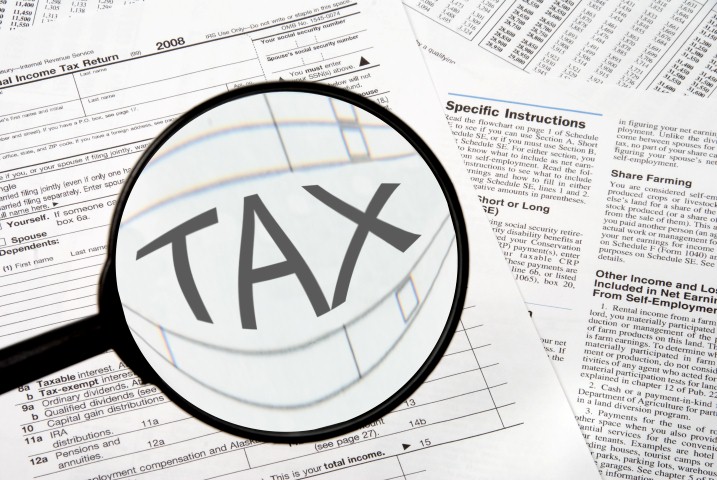

Government IT suppliers Accenture and Capgemini have been singled out by MPs as alleged tax avoiders, but the two companies have vehemently denied any wrongdoing.
The spotlight on tax avoidance was brighter than ever in 2012, with Amazon and Google grilled by MPs over their tiny tax bills. A TechWeekEurope investigation revealed security companies Sophos and Symantec, who both have government contracts, paid minimal tax in the UK, despite making hundreds of millions in profit on our shores.
“The UK government is by far the biggest purchaser and grant-awarding body in this country. Is it right that Amazon can get more than £10 million of Government money for a new warehouse in Dunfermline when it is a Luxembourg-based retailer paying little corporation tax in this country, and apparently does not pay VAT on all its sales either?” he added.
“We have a crisis – a growing crisis of our national tax system operating in an international business environment.
“Lurid stories of tax avoidance appear almost every week, and Private Eye magazine deserves special mention for its exposure work.
“Vodafone … companies such as Accenture and CSC, and of course American behemoths including Apple, Google, Amazon, Microsoft, Facebook and Starbucks, are just a few of the examples.”
There were claims that Accenture was able to reduce its tax bill to 3.5 percent, paying £2.8 million in tax on almost £82 million in profits in the UK last year. But the company said the figures cited were misleading, although it admitted its total tax bill was £2.8 million, largely thanks to deductions and losses brought forward.
It said it was to pay £12.7m in corporate taxes deferred to later periods, meaning its bill for the fiscal year 2011 stood at £15.5 million.
Capgemini, meanwhile, said it had an “exemplary record” in its tax dealings in the UK.
“In the UK our current corporation tax charge is low due to the impact of the significant ‘carried forward’ operating losses from previous years and the deferred tax that largely relates to our pension deficit, as detailed in our Annual Report and Financial Statements filed with Companies House,” a spokesperson said.
“We are fully compliant with UK corporation tax law.”
CSC said: “In its more than 40 years operating in the U.K., CSC has a history of paying U.K. corporation tax, employment tax, VAT, sales and use tax, property tax and other transactional taxes. In total, CSC paid more than £300 million in UK taxes in fiscal 2011.”
Vodafone had not responded to a request for comment at the time of publication.
Despite MPs’ blustering, Dominique Lazanski, head of digital policy at the Taxpayers Alliance, told TechWeekEurope the Coalition should be fearful of imposing tough penalties or heavy taxes on tech companies who bring much to the UK economy and to government IT.
“I’m highly concerned that regulatory and tax scheme uncertainty will drive tech and IT companies away from the UK. Whatever the moral and ethical opinions might be, they are acting legally,” Lazanski said.
“These companies employ hundreds of thousands of people in the UK and invest in property and critical infrastructure – all of which they pay tax on. Though reform in the corporate tax system is needed we should not forget the fact that without such companies many jobs and considerable tax revenue would vanish.”
UPDATE: Symantec, two months after your correspondent published a report on its tax records, today sent over this explanation of their low tax bill: “Like many technology companies, Symantec’s investment in M&A, R&D, facilities and our employee base in the UK impacts our pretax profits and tax credits. We are proud to have a strong presence in the UK and will continue to invest in enhancing our product portfolio and in our employees in region.
“In accordance with UK tax regulations, Symantec group companies may surrender their taxable losses to other group companies that are in a taxable profit position for the same financial year. For the years in question, Symantec UK Ltd received losses from other Symantec group companies which offset its taxable profit. The reference to tax credits in the company’s financial statements relates to the recording of a benefit for losses allocated across the group and not to any tax refunds received from HMRC.”
Do you know all about UK tech leader ARM Holdings? Take our quiz!
Notable development for Meta, after appeal against 2021 WhatsApp privacy fine is backed by advisor…
First sign of shakeup under new CEO Lip-Bu Tan? Three Intel board members confirm they…
Trump's nominee for SEC Chairman, Paul Atkins, has pledged a “rational, coherent, and principled approach”…
After being 'retired' by Intel's board of directors, ex-CEO Pat Gelsinger has joined a VC…
President touts easing Chinese tariffs to facilitate TikTok sale, and also implements 25 percent tariff…
Copyright lawsuit against OpenAI and Microsoft from The New York Times and other newspapers can…
View Comments
As a UK resident and tax payer it annoys me having to listen to the rampant double standards from our leaders. They set the rules; let them change the rules.
The MPs hid behind 'doing nothing wrong' as a reason to line their own pockets during the expenses fiasco. Now these large companies are only doing the same to drive greater profit.